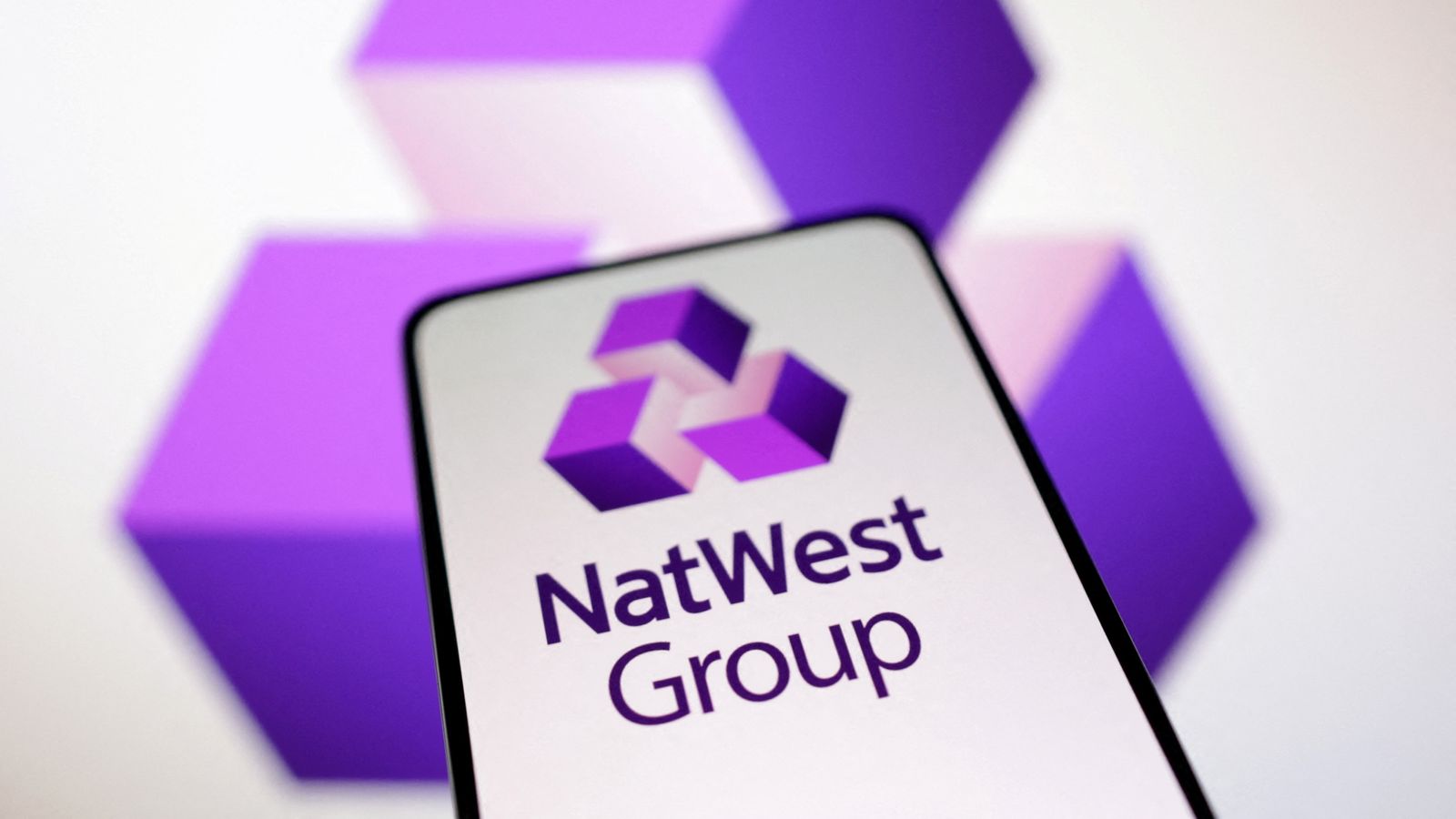NatWest to hike chief’s pay as bank returns to full private ownership

NatWest Group is to hand its chief executive a potential multimillion pound pay boost as it returns to full private ownership after nearly 17 years in state hands.
Sky News has learnt that the chair of the bank’s remuneration committee, Lena Wilson, is consulting leading institutional shareholders about an overhaul of its boardroom pay policy.
The details will be put to a vote at NatWest’s annual meeting next spring, in accordance with rules requiring investors to vote on remuneration policies every three years.
Under the plans, Paul Thwaite, who took over as the bank’s interim chief executive in July 2023 before being handed the role on a permanent basis in February, would be in line for an increase in his maximum annual bonus from 100pc of his base salary to 150%.
NatWest also intends to replace its restricted share plan (RSP) for Mr Thwaite, which awarded him stock worth a maximum of 150% of his salary, with a performance share plan (PSP) which could pay him up to three times his basic pay each year.
Assuming his salary of just under £1.2m remains unchanged, that would mean him being in line for a maximum reward package – excluding pension contributions and other items – of about £6.6m, up from roughly £4.2m today.
Last year, he was awarded a total package of just over £2.4m.
The prospective increase would bring Mr Thwaite’s compensation more closely into line with peers including Charlie Nunn at Lloyds Banking Group and CS Venkatakrishnan at Barclays.
“CEO target pay will continue to remain lower than UK banking peers and is positioned around the FTSE-50 mid-market level,” Ms Wilson wrote in her letter to shareholders.
Mr Thwaite replaced Dame Alison Rose after she was forced to step down over the debanking row involving Nigel Farage, the Reform Party leader.
Leading City investors who have been part of the consultation process are said to be overwhelmingly supportive of the pay overhaul, particularly in the wake of NatWest’s performance this year, which has seen its shares surge by 90% during 2024.
Regulators have also begun to relax rules imposed on bankers’ pay imposed after the 2008 crisis, with the Bank of England recently signalling plans to reduce the period over which share awards vest and must be held.
Read more from Sky News:
Royal Mail handed big fine for missing targets
Telegraph hands out bonuses amid ownership uncertainty
A NatWest Group spokesperson said: “Our remuneration policy is subject to shareholder approval at our AGM and we would not comment on the detail of any proposed changes.
“Our objective with our remuneration policy is to ensure alignment between executive pay, performance and the long-term value created for our shareholders.”
Executive pay has been a sensitive subject for NatWest, which was previously called Royal Bank of Scotland Group, ever since it was rescued with £45.5bn of taxpayers’ money during the financial crisis of 2008.
The pension package of Fred Goodwin, RBS’s former chief, and bonuses awarded to Stephen Hester, who was parachuted in to replace him and stabilise the bank became huge political headaches for the governments of Gordon Brown and David Cameron.
Since the sale of the taxpayer’s majority stake in RBS kicked off in 2015, bonuses have become a less contentious issue for the bank.
On Friday, NatWest announced that the Treasury’s stake had fallen below 10% for the first time since the bailout.
“We are pleased with the sustained momentum in reducing HM Treasury’s stake in NatWest Group,” it said.
“Returning the bank to full private ownership is a shared ambition and one that is in the interest of all our stakeholders.”
Sky News revealed in October that the government was on track to fully exit its NatWest shareholding by the middle of 2025 – or sooner if it launches an institutional placing of part of its remaining stake.
Even after the partial recovery in its valuation, taxpayers will see a loss running to billions of pounds from the emergency bailout.
On Friday, shares in NatWest closed at 405.5p, giving it a market capitalisation of £32.6bn.